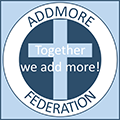EYFS 2023-2024
Our Vision
Children join our Foundation Stage from a range of nursery settings and we visit all of these prior to the children starting to ensure we support a smooth transition to our school. We also offer a range of transition sessions over the Summer Term so that our new children are familiar with school before they start.
Our learning environment is welcoming, inspiring and engaging and the children have access to three main learning spaces, including an outdoor area as well as the playground and our extensive onsite Forest School.
The curriculum is based around the latest EYFS Curriculum and Development Matters, however the team have adapted to ensure learning is relevant to the needs and interests of the children and also has the right amount of ambition and challenge to maximise their progress and access to a wide range of learning experiences. With the ELG and Development Matters materials in mind we have developed a summary termly overview of how we see knowledge and skills developing throughout the year in Foundation Stage and this is attached below. Each area of learning also has termly progressive milestones which are available- please just ask. This ensure childrne are prepared for the curriculum in Year One and onwards.
More recently we have also added in 7 specific concepts we wish the children will also be able to achieve at the end of Foundation and all the components needed to make this happen. These are outlined in the document below.
The team work collaboratively to share the learning space and hold weekly 'pupil progress' meetings informally to assess the children's learning and adapt provision as required. We are developing the children's ability to edit and improve their learning so that they are able to refine and develop knowledge learnt.
Phonics and reading play a crucial role in the Early Years and the team have designed their learning around key books and texts so that the children develop a love and interest in texts and can then link this to the other areas of learning. These texts develop progressively across the year to ensure we support good quality and ambitious language development and a love of books from an early age.
We follow the Little Wandle Scheme for Phonics (see Early Reading and Phonics link for further informaiton) and we link the child's reading book to the sounds they have learnt. We also invite parents to Phonics and Reading Workshops and we have regular parent sessions during the year that allow the children to share their learning with their families.
The children have key literacy inputs throughout the day (including phonics, reading, story time and discussing stories) and a Maths input so that we are giving them the key knowledge to then apply and use in their creative and child-led learning.
The classrooms are set up with interactive displays, role play areas, construction, imaginative play areas, sand and water and there is always access to a range of materials for the children to be creative and artistic with.
Here at Adderley CE Primary School the children follow the statutory framework for the Early Years Foundation Stage (EYFS). The EYFS curriculum is split into seven key areas of learning which are:
- Personal, Social and Emotional Development
- Communication and Language
- Physical Development
- Literacy
- Mathematics
- Understanding the World
- Expressive Arts and Design.
The EYFS curriculum also has three ‘Characteristics of Effective Learning’ which are to promote, critical thinking, active learning and playing and exploring.
Progress Check at 2 Years Old
Before you child's 3rd Birthday, our Early Years Practitioners with carry out the early years foundation stage (EYFS) progress check at age 2. This check assists practitioners in early years to:
- review a child’s development and progress in the 3 prime areas of learning and development in the EYFS framework
- identify any areas of concern or additional development needs
- work with parents and other professionals to put in place appropriate support and intervention
The guidance used by practitionaers to inform, support and offers suggestions is called 'Progress Check at age 2'. Alongside this practitioners use the Development Matters document which sets out how children develop and learn.
What is the purpose of the check?
The progress check at age two has three main purposes
Partnership with parents
While practitioners and other professionals can support children’s development and wellbeing individually, they can achieve so much more by working together. ‘Parent’ is used throughout the document to refer to parents, carers and guardians.
Action for every child
Writing down observations and sharing reports do not help children. Practitioners need to listen to the child, talk with each other and then plan together. Working together can make a difference.
Early identification
Some children need extra help for a while as they grow and develop – for example, with their communication.
Other children may have long-term developmental needs. Some families may struggle and need support. Whatever the circumstances, sensitive early intervention can make a big difference. Children develop rapidly between the ages of two and three – practitioners need to be quick to support and identify help where it is needed.
Further information as to what you can expect in Early Years is included in the documents attached below.

